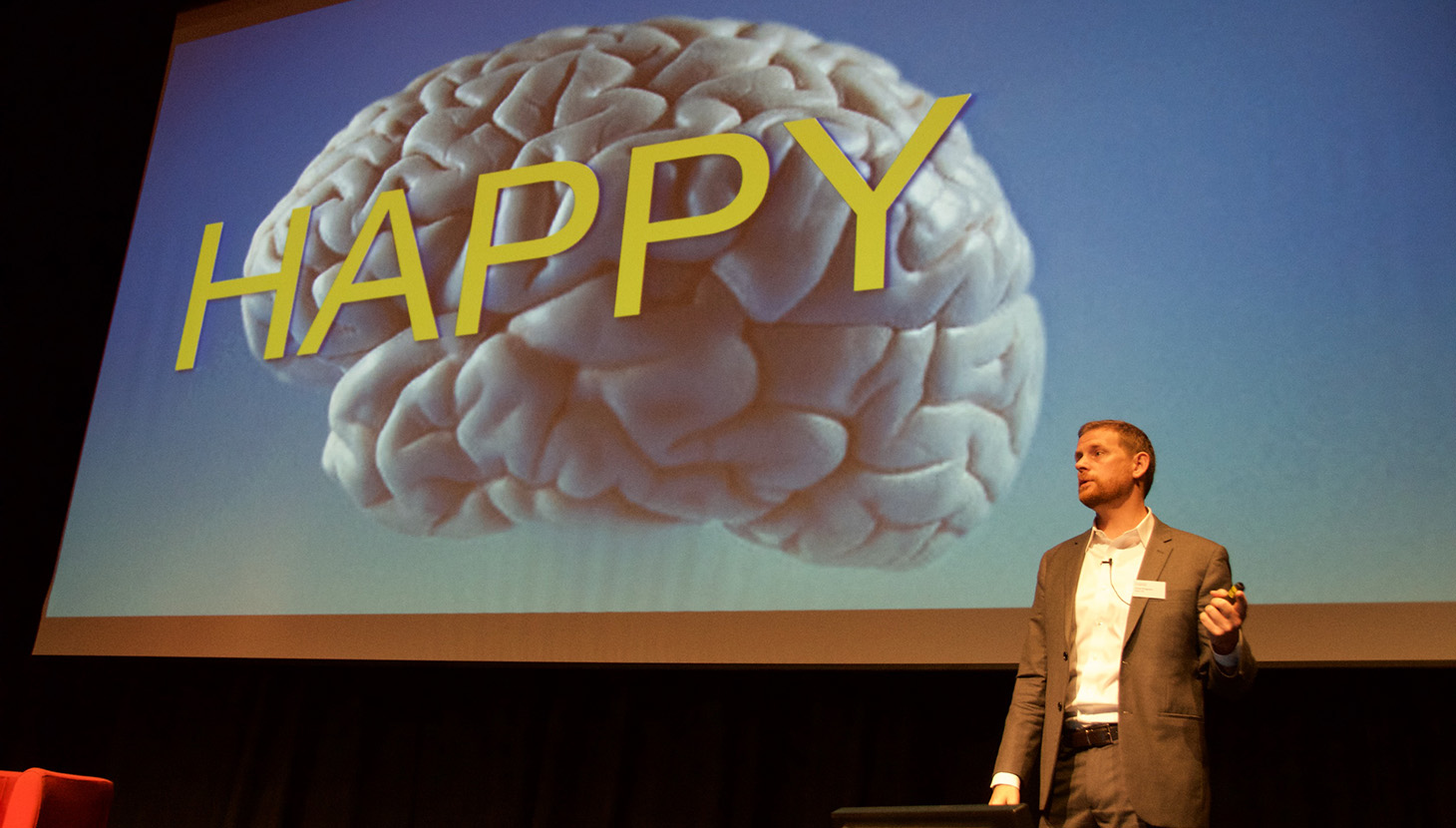ANNUAL CONGRESS X: HEALTH, HAPPINESS AND WELLBEING: Our congress this year looked to explore the role of this crucial triad in the context of place making. With debates situated in diverging realms – health policy, High Speed Rail 2 implementation and the structural qualities of the planning system itself – the same question remained central: How can built urban environment specialists cater for health, happiness and wellbeing in placemaking processes and their physical output, and what role can The Academy of Urbanism play?
By way of provoking further debate, through the questions posed by our speakers and reflections made by our attendees, here follow some VOICES FROM CONGRESS:
Dr Adrian Philips – Director of Public Health, Birmingham City Council:
ARE OUR CITIES COSTING US OUR LIVES?
What we should be asking is how do we make people happier through the design of our cities?
It should not be the approach of “you’ve got a problem”, but rather “how do we help you achieve your potential” and I think that is what public health is about, and I think that is what urbanism is about – how do we help people achieve their potential.
And yes, cities intensify inequality; but our job is to mitigate that. We’ll never get rid of inequality, but there are things that we can do…
Prof Peter Roberts – Vice-Chairman, Northern Ireland Housing Executive:
THE SEVEN PILLARS OF WELL-BEING
Nowadays issues are put into silos – we don’t deal with places in England holistically. We slice issues and create health and wellbeing boards which only further the disconnectedness between providers and government. Here the role of the Academy is very important…
Young Urbanist on workshop:
TACKLING THE OBSOGENIC ENVIRONMENT
An idea I heard repeated several times throughout the congress was that; the complexity of the planning system makes it difficult for professionals from other disciplines to contribute and help bring about positive change. There is perhaps an onus therefore on planners to make sure the relevant voices are heard, which may require an element of thinking outside the box as to who these voices may belong to and when they should be heard.
Young Urbanist on workshop:
CONNECTED COMMUNITIES
The debate on high speed rail must move from a purely technical discussion to encompassing much broader issues, effectively engaging with stakeholders and ensuring that the system brings about improved health, wellbeing and happiness, as well as faster journey times to London. It was felt that The Academy of Urbanism can further this debate by publicising the advantages and best practises of high speed rail, and bringing together businesses and institutions in exchanging ideas on identity and purpose.
REPORTS: TALKS
Birmingham, Towards a People-Centred Urbanism
Sir Albert Bore – Leader, Birmingham City Council
Congress Report / Are Our Cities Costing Us Our Lives?
Dr Adrian Philips – Director of Public Health, Birmingham City Council
People, Place & Time – UK’s High-Speed Network
Sadie Morgan – Chair, HS2 Design Panel & Co-Founder, dRMM Architects
Happy City
Charles Montgomery – Founder, Happy City
REPORTS: WORKSHOPS
Connected Communities – HSR and Infrastructure
Henk Bouwman – Director, The Academy of Urbanism
Tackling the Obesogenic Environment
Shaleen Meelu – Public Health and Nutrition Specialist, Public Health Birmingham
Creating Age-Friendly Neighbourhoods
Mike Walsh – Senior Service Manager, Birmingham City Council
Janet Sutherland – Director, AoU
Birmingham Cycle Revolution
Michael Parkinson – Partner, Peter Brett Associates
Interested in supporting or contributing to next year’s Congress? Contact Stephen Gallagher on sg@academyofurbanism.org.uk


